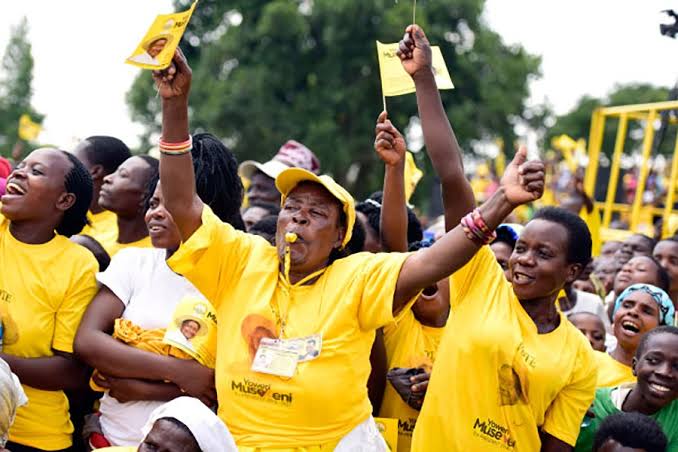There is no doubt that the National Resistance Movement (NRM) has won several presidential elections, but they have registered reducing percentages since 2011.
President Museveni scored 59% in the 2006 elections, which was the first election after entering multi-party politics. However, in 2011, Museveni won with 68%, followed by 60.8% in 2016, and 58.38% in the 2021 elections.
There is a trail of reducing percentages that can be attributed to both the increasing public dissent and the NRM weaknesses that bring in internal fights, disorganization and a lack of coordination leading to party incoherence.
Multi-party politics also ushered in anti-development agendas and ideologies with sectarian politics that created divisions and hatred, causing an effect on NRM performance in general elections.
The predictable nature of NRM projects has contributed much to the poor image of the NRM as a party. Projects like Bonna Bagaggawale, Entandikwa, Emyoga, the Youth Livelyhood Project, and many others have been so predictable that citizens look at them as dead projects on arrival, and indeed, they fail at the end of the day.
This has caused the public to lose trust in the party as well as the new projects introduced by the government. It is not surprising that even the Parish Development Model that was recently rolled out is already seen as a project that will fail.
The rampant corruption that has seen tax payers’ money wasted, the bloated parliament full of self-seekers stealing money in broad daylight, and the NRM government showing no will to fight the vice are some of the reasons the NRM image has deteriorated, coupled with many new taxes with less service delivery.
Whereas the president has been on record for preaching politics of unity and cohesion, many of the NRM politicians act contrary, play sectarian politics, and divide citizens.
The well-grounded party structures have been used by individual politicians for selfish interests, and many party officials just look at swindling resources instead of adding more numbers to the party.
The corruption in districts and other local governments has failed service delivery, and district service commissions have been used as tools for politicians and others to employ their relatives and supporters, leaving out qualified and competent people.
If the President shows the will to fight corruption, puts in place laws and policies to fight the corrupt, and strengthens cohesion in the party, the NRM, with its principles of Democracy, Patriotism, Pan Africanism and Socio-economic transformation, would definitely have its winning percentage increase in the 2026 general elections.
As the opposition parties are busy fighting for positions and resources, the NRM has the strength and chance to rejuvenate support in many regions that had started voting otherwise.
There is a need for re-organization internally. If not, the citizens will keep thinking they are left out and only used by selfish politicians who only come to give them handouts during campaigns but don’t focus on service delivery.
